- People
- Mike Kruglik
- Sam Ackerman
- Janny Scott
- Ryan Lizza
- David Mendell
- Michael Oreskes
- Ron Brownstein
- Matt Bai
- Newt Gingrich
- Charlie Cook
- Pete Rouse
- Peter Baker
- Related Links
- A Series of Fortunate Events
"Barack Obama needed more than talent and ambition to rocket from obscure state senator to presidential contender in three years. He needed serious luck." (The Washington Post, Aug. 12, 2007) - Making It
"How Chicago shaped Obama" (The New Yorker, July 21, 2008) - Pragmatic Politics, Forged on the South Side
"The secret of his transformation … can be described as the politics of maximum unity." (The New York Times, May 11, 2008)
Mike Kruglik Community organizer
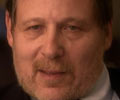
What does he learn from community organizing?
He learned that no matter how idealistic he was, no matter how much he wanted to recreate the civil rights movement and create freedom for people, your idealism doesn't mean a thing unless you can build power. And the source of power, based on community organizing, is organized people and organized money.
So he takes that lesson and seizes the opportunity to participate in redrawing the legislative map and creating for himself a district that combines organized people and organized money. And the types of people that are in that district are the same kinds of folks that one sees now that turned out to be the backbone of his Senate campaign, and now of his presidential campaign.
So some people might say, that makes him just another politician.
Right. But number one, he learned this in a very intentional way from community organizing and really from the tradition of [community organizer and writer Saul] Alinsky. Alinsky said it's not the lessons of power that are in themselves so critical. It's who has access to those lessons and what those lessons are used to create. …
So Obama, who came from a family that was struggling -- his mother was on food stamps and his father deserted him when he was two years old -- didn't have a family dynasty to build on, didn't know anybody in the city of Chicago or in the State of Illinois. So he had to rely on these same lessons in much the same way that Alinsky actually conceived of the idea that ordinary people could learn the same lessons of power used by princes and kings. And he learned that power comes from organized people and organized money.
Sam Ackerman Chicago political activist
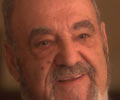
What did he learn from community organizing in Chicago?
The importance of one-on-one relationships, of listening and of talking to people from where they're coming from, kind of a Saul Alinsky model. And I think that's continued in the campaign, not only with Barack personally, but from what I understand in the training of his organizers. They're not trained to just go out and survey voters, but to speak to what voters care about. And I think that's probably the biggest thing that might have been learned from community organizing.
The other might be resiliency, because there's a lot of failure when you're trying to do community organizing, just as there had been historically in politics here. We lost an awful lot of races before we elected Harold Washington [the first black mayor of Chicago]. And those of us in the progressive community had a lot of other disappointments in other races before Obama won the U.S. Senate primary. So I think that kind of bouncing back from adversity is a big part of what one learns in community organizing.
Janny Scott The New York Times
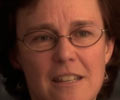
One of the great stories about Sen. Obama is that when he first decided to run for the state Senate, he had been approached by a rather well-liked, respected state senator named Alice Palmer, who had represented the district that he ultimately represented, Hyde Park, South Side. Alice Palmer had decided she was going to run for a congressional seat that had suddenly become open because the congressman had pleaded guilty to having sex with a minor. So Alice Palmer decided to run in that and, I'm told by people who were close to Obama by the time, said to Sen. Obama, "Would you be interested in running for this seat?"
He decided to do it. Some people who met with him at the time said, "I wouldn't count on her sticking to that promise, since if she doesn't win the primary, she's going to want her seat back." And lo and behold, that's exactly what happened.
But the people around him, particularly one guy, Ron Davis, who was a sort of field coordinator for his campaigns, said to him, "You've got to go down and do the thing that everyone in Chicago does, which is challenge her petitions." So Ron Davis and a couple of other people went down to Springfield and went to the state elections office and scrutinized the petitions for all the usual tricks that everybody in Chicago politics knows to look for, challenged her positions, got her removed from the ballot, and while they were at it, challenged the positions of everyone else who was planning on running against her. So he ran unopposed in this first race. …
Is he the kind of guy who, in a moment like that with Alice Palmer, would go into the room and sit with her and say, "You know what, Alice, I'm not going to give your seat back. In fact, I'm going to go challenge your petitions"? Is he conflict-averse or is he the kind of guy who can sit across the table from someone and say, "Your political future is over and I'm seizing the moment"?
I don't think he's conflict-averse, but I don't think he's prone to ultimatums, from what I've been told. A delegation on behalf of Alice Palmer, including some very august figures from the South Side of Chicago, came to him and asked him to step out of the way and let her run again for her seat. That meeting has been described to me. And those are people who are older, respected people, well known, whom he knew and liked and who liked him. They earnestly entreated him.
And he listened, as it's been described to me, and said, "I'm not going to do it." So I think he's not uncomfortable having the conversation, but I don't get the impression at all that he shies away from that kind of conversation. It sounds like, from that anecdote and others, that he can draw a pretty clear line without being downright hostile about it.
Another thing that he'd done, along those lines, was that, when he was thinking about running for the U.S. Senate, he went to Jesse Jackson Jr., the congressman, this up-and-coming guy who he knows quite well, and says, "If you're thinking of running, I won't run," and really gave him the chance to stop him. Again, had the conversation. Congressman Jackson said he was not thinking of running. And then Sen. Obama went ahead and did it. …
I think he has an understanding of timing that has served him very well in politics. You see it in the Alice Palmer race, where people tried to talk him out of it. You see it in the Bobby Rush [congressional] race, where people tried to talk him out of it, and they didn't successfully. And he paid for it, sort of. And then he runs for the Senate, again, at a time when many people would have thought, "Come on, you were washed up three years ago. What are you doing out running now?" And his decision to run for the presidency.
People have said to me that in Democratic politics in Illinois, the traditional way is that you wait your turn. Sen. Donne Trotter, who ran against Sen. Obama and Bobby Rush that year and also served with him in the state Senate, has said that's what is expected. … Sen. Obama does not play by those rules. So far, it seems to have worked.
Ryan Lizza The New Yorker
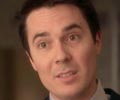 Read the full interview >
Read the full interview >
Obama's district was drawn in the early '90s by Republicans after the 1990 census. [In 2001, after Democrats won the right to redistrict the state] he's going to get a chance to redraw his own district.
Basically, what happens in redistricting is legislators sit down and they choose the voters that they want to represent. … You create a district that gives you maximum political advantage.
The way the process worked in Illinois was, one by one, legislators walked into a room called the inner sanctum. This is a room in Springfield in an old 1950s office building. Outside, you're protected by a fingerprint reader and a keypad. You walk through that door and you're in a little room, and there's another door with another fingerprint reader and another keypad, just to emphasize that this is a very secure place.
Obama sits down with a Democratic staffer named John Corrigan at a series of computers that has all kinds of demographic and mapping technology. And they start the process of redrawing Obama's district.
Now, to understand this, you have to understand a little bit of Chicago geography. Think of Chicago as hugging the west side of Lake Michigan. Obama's base is Hyde Park, which is in south Chicago, in the South Side. He has an east-west district that runs from Hyde Park and juts west, away from the lake, into, frankly, not very nice neighborhoods, as they described to me, sort of poor, black bungalow homes on the west side of Chicago.
The new district that he helps create now runs north-south. So he maintains his southern Hyde Park base. … Those were his strongest supporters in Hyde Park. But instead of going west, the district now goes all the way north into the downtown area of Chicago. And his new district now includes most of the Loop, the famous business district of Chicago. It includes the majority of the lakefront. It includes the museums, the main shopping hubs of [Magnificent] Mile on Lake Michigan, the Gold Coast, with all of its tony condos overlooking the lake. …
He built a district that was two things. One, he built a district that was more naturally his coalition, which was upper-income whites and African Americans, the same coalition that drove him in the primaries. But this redistricting process gave him two huge new opportunities. One is that if he was thinking about running for higher office, which he was, the people that he would need to raise money from, they didn't live outside his district any more. They were now his constituents. …
The second thing is the redistricting process itself, the whole goal was to gerrymander the state of Illinois so the Democrats would take back the state Senate. Once they took back the state Senate, Obama would finally have the chance to pass some legislation. And as he began thinking about running for the Senate in 2004, these two changes would be of epic importance to him, probably the most important changes of his political career. Without them, he may not have had a shot at that U.S. Senate seat. …
So the big question is, what does that say about him?
… Partisan redistricting in America is the most corrupt process that's still legal, right? Everyone does it, every party does it, and everyone knows it's totally wrong and is the sort of cause of a lot of our political problems.
But he was operating 100 percent within the rules. And it shouldn't surprise us that he was an eager participant in the partisan redistricting of Illinois and helped create a district that would advantage him in every way that he could.
But again, it goes back to, is this someone who is so above it all and so unwilling to engage in the sort of messy process of politics? Or is he someone who is extremely ambitious and realizes that the rules are the rules and if he doesn't take advantage of them, surely his opponent or someone else will?
David Mendell Author, Obama: From Promise to Power
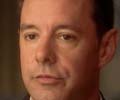 Read the full interview >
Read the full interview >
Tell me about the [2002] speech [he gave against the Iraq war]. Obviously this is a speech that he assumes will resonate, not only through his senatorial campaign but out into the country as well.
It was hard to know at that point. He knew it would be an important speech. … He was called by an influential fundraiser and supporter of his, who knew from private conversations that they had had together that he was vehemently against the invasion of Iraq. So she thought he would be perfect at this event. Her name was Bettylu Saltzman.
So Bettylu Saltzman calls Obama and says, "Will you speak at this event?" And Obama initially isn't sure whether he should go or not. ... He was not a declared candidate yet for the U.S. Senate, but he knew that that issue was hot button enough that whichever side he came down on it would perhaps define him for some time to come. Ultimately, ... one of his aides said, "If she's asking you to go speak at this, you have to go speak, but you need to be careful what you say."
He was extraordinarily careful in how he wrote the speech. At that point, he's such a good speaker off the cuff that he rarely wrote speeches out, but he sat down and decided he was going to write this speech out. ...
He started it off by saying, "I'm not against all wars; I'm against a dumb war." And there were a lot of pacifists in that crowd; there were a lot of people in that crowd who just didn't like war in general. That kind of opening was often effective to media and reporters, because it sounds like you're giving your authentic viewpoint; you're not just pandering to the crowd.
As it turns out, that speech would be of great value to him. He set himself out against the war from the very beginning, while other candidates, such as [Sen.] Hillary Clinton [D-N.Y.], [Sen.] John Kerry [D-Mass.], [former Sen. John] Edwards [D-N.C.] -- these folks had to combat their votes on that topic when the tide of the country moved the other way. That anti-Iraq war speech that he gave in 2002 was the gift that just kept on giving for him.
I'm certain that he felt that way in his heart, but also it perhaps wasn't as risky a speech as everyone thinks. At that point, he's trying to bring two constituencies to his side if he runs for the U.S. Senate -- progressives and blacks -- and he's trying to marry these two constituencies to win that U.S. Senate race. Both of those constituencies were against the invasion of Iraq, so he was going to win those audiences over. ...
And so, for political reasons, it wasn't necessarily as risky as someone who was sitting in the U.S. Senate deciding whether they're going to run for president one day. He's just trying to win a U.S. Senate race in which that kind of speech would probably help him, not hinder him.
Michael Oreskes International Herald Tribune

One of the things that Obama has successfully done is something that's actually quite reminiscent of [Ronald] Reagan, which is he's a candidate of optimism. He's a candidate of hope. He's a candidate that says, "Things can get better." That was the essence of the Reagan political appeal. Obama does it very differently from Reagan. But in many ways he's doing the same thing. He's saying, "You can believe." And that's a powerful political message.
Historically in American politics, the candidate of optimism tended to be the candidate who wins. … McCain always has been promising change and promising a new kind of politics. But, by being a messenger of hope, Obama is rallying a whole bunch of very disillusioned people, or people who have never really been in the system, or have walked away from the system. So he's attempting to mobilize large numbers of both younger people, and simply people who have not been happy with the system.
Ron Brownstein The National Journal; author, The Second Civil War
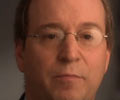
I think Obama, first of all, is a magnetic political speaker. … He looks good on television. He sounds good. He can be riveting in person, though on television he's a little more reserved. So he is a good performer in an age when that matters a lot. …
He also has a message that is uniquely suited for the end of the Bush presidency. The dominant domestic fact of the Bush presidency has been intense, unrelenting polarization and partisan division. And by and large, I think the evidence is that the country is exhausted with that, and Obama comes along with a message that says, "We're going to look beyond red and blue. I am going to transcend many of these traditional divisions, not only ideological and partisan, but also racial."
And he … is the walking crystallization of his promise of uniting disparate views. He is of mixed race; he is of mixed nationality. He is someone who, in his own life, exemplifies what he promises to do in political life; someone who has built bridges in his family, at Harvard, every place he has been. Now, Republicans will challenge whether he's really done that politically, and I think that is a legitimate question to ask, but there's no doubt that the fusion of Obama's message and personal story is very powerful. It is a great asset for him.
And then … as a former community organizer, he did have a vision of how you run campaigns in the Internet era, and how that's changed the incentives and rewards in politics. [N.Y. Sen. Hillary] Clinton's campaign fundamentally was a top-down campaign that looked to involve people, but had a large level of centralized control. … Whereas Obama has embraced, more than Clinton did, although Clinton adapted as she went on, much more of the Internet ethos of building a dispersed network and providing that network enormous flexibility and leeway to go out and do things on your behalf, including things you may not know about.
I was talking to the guy who ran Obama's campaign in California, a veteran political operator in the state. He told me a story that in December 2007 he went to a Christmas party, and there was a guy there who handed him a flier that was left at his door by Obama supporters. And this, of course, is about two months, six weeks, before the California primary. And he gives it to the operative and he says, "What is this? You're leafletting already?" And he looked at it and he said: "Well, I had never seen the leaflet. I had never authorized the leaflet. I had never asked anybody to go leafletting. But they believe, 'Look, I want to elect this guy president, why should I wait for the headquarters to tell me what to do?'" That kind of ethos allowed him to build a volunteer network that was really unprecedented.
When they opened their office in Texas, they had the names of, what, 125,000 people who wanted to help on the campaign. A generation ago, how long would it have taken you to find 125,000 people who wanted to work on your campaign, and what would you have done with them if you found them? …
The Internet can turn around the equation. People who agree with you find you, and Obama benefited from that more than anyone else.
Matt Bai The New York Times Magazine; author, The Argument
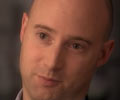
Generally, the best politicians are able to channel and reflect the moment in a way that gives them some amount of power and appeal. That's been true throughout history; you could go down the list.
And I think that's true at this moment of Obama, where he's generationally a little different. I mean, he's technically a baby boomer, but culturally he's really not. He's more in line with Gen-X'ers. He's at the tail end of the baby boom. … He understands some of the changes that have been going on in America. I think he understands the technological change a little better.
It's Obama who really, unbeknownst to almost anyone -- still people don't really know this -- but in early 2005, when there was a fight over Supreme Court announcements, [it's] Obama who goes on Daily Kos, the most popular liberal blog in the country, by himself … at a keyboard at his home, and really pushes back against the bloggers and says, "You're not behaving fairly. And you're not behaving right. And you're attacking too many of my colleagues for the way that they're voting. And we can't have a party that doesn't tolerate dissent, that won't have a conversation over right and wrong." It's kind of an extraordinary thing. He's still, to this day, the single Democratic politician who's pushed back in a personal way the hardest against that culture, the Democratic blogs.
So Obama gets what's going on out there, clearly, and wants to engage it in some way. And although he may not be temperamentally a whole lot better suited to what we call "the net roots" or the activist base of the party than Hillary Clinton is -- that is, a lot of what he preaches about post-partisanship is not music to the ears of the Democratic base -- he understands this culture of engagement. He understands what bottom-up engagement is versus top-down. He understands that there's a new ethos of how to communicate with people, … and I think that has benefited him very well.
Newt Gingrich Former House speaker, 1995-'99 (R-Ga.)
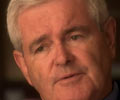
I think Obama is one of the smartest people in modern politics. I think that he has a sense of discipline, a sense of vision, a sense of clarity of communication that makes him extraordinarily formidable. We now also know he has great courage and a willingness to roll the dice in a very long-shot situation. He's, I think, one of the most formidable personalities in modern American life.
Why? What makes him formidable?
Everything I just said. It takes somebody who is brilliant, articulate, disciplined, determined, willing to tackle long-shot opportunities. And he's an attractive, articulate African American with an attractive family from a major state. That's a lot. And he has very methodically built what he's doing. He's done it very deliberately, and he's been thinking about this a long time. And I think that he is as formidable as anybody we've seen in recent years.
Charlie Cook The Cook Political Report
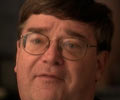
He is one of the more inconsistent performers I've seen. For example, the day of his speech to the [Iowa] Democratic Jefferson-Jackson dinner, all the Democratic candidates spoke at the Iowa Farmers Union. And he was the flattest, the dullest of all the Democratic candidates. And I thought, "Wow." I asked some of the reporters that had been traveling around with him full-time, and they say: "It's like this. Sometimes when he's off, he's really off." And then that night, he gives this amazing speech. …
Wait a minute. Was the crowd different? …
It's a good question, because … I know a lot of politicians, they draw energy from the crowd, and then send it back out, and [it] becomes like a circular thing. I understand that concept. …
I just think he's a very emotion-driven guy and that it's like watching a high school or college basketball team in that when they're up and into it, damn, they're good, but when they're flat, boy, they're flat.
And some of these other folks -- you look at John Edwards, Hillary Clinton, they're pretty consistent performers. And their high notes may not have been as high as Obama's high, but they were very consistent performers. Obama wasn't like that. But he didn't seem to be graded off for the mediocre performances. His standing was set by his high notes, his peaks, and the valleys seemed to be kind of written off.
Pete Rouse Chief of staff to Sen. Obama
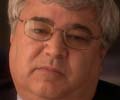 Read the full interview >
Read the full interview >
First of all, remember, when I sign up [to be his chief of staff], he's not running for president. There's no indication that he's running for president. And he's not thinking of running for president. And I look at this guy, and I may be the one person in politics who have never seen the speech at the [2004 Democratic National] Convention. ... I've never seen it. Never even read it, for that matter, which I probably shouldn't admit to.
But you could tell that this guy -- and I'd met him a few times -- he may not be running in 2008, but he was important to the future of the Democratic Party. Partly because he's African American, but the major reason was because he had such intelligence, insights, spark. He had the magic. You can tell he had the magic.
And what he said to me, when he was trying to talk me into doing this, is he says: "I know what I'm good at. I know what I'm not good at. I know what I know, and I know what I don't know. ... I can give a good speech." And I said: "Oh yes you can. We all agree with that." He says: "I know policy. I know retail politics in Illinois. I don't have any idea what it's like to come into the Senate and get established in the Senate. ... I want to get established and work with my colleagues and develop a reputation as a good senator. And we'll see what happens." So I was impressed by his approach to this.
I did think that he was important to the future of the Democratic Party. Ten years in the leadership with Daschle, 19 years in the Senate, I was well aware that we could use an injection of fresh blood and talent in the Senate. I sat in the Democratic Caucus lunch every day for 10 years. And I'm looking at this guy and saying, this guy has got as much potential as anybody. I'm not disparaging anybody in that room, but as much potential, long-term potential as anybody in the caucus that I've seen over 10 years.
So my view was, since he's not running for president in 2008, to get him started: to set up his operation, get a good team in place, get a good strategic plan in place, get a good structure. ... I'll lay that foundation and we'll see what happens. I'll be in my rocking chair when he runs in 2016 or whatever.
Peter Baker The New York Times
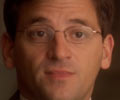
What does the choice of Joe Biden for vice president say about Obama?
Obama made the safe frontrunner's choice. He chose somebody who would first do no harm. Joe Biden isn't going to cost him anything, assuming he doesn't make some verbal gaffe that produces a problem. He reinforces him a little bit on the foreign policy. But what's interesting about it was I think he traded away his strongest argument in this campaign which is the idea of generational change, the idea of the next generation of young leaders coming in and changing Washington. …
What might it define about how he will make decisions as president of the United States?
I think it shows that Obama may be not as unconventional as he has presented himself to be and as we would like to think [of] him as being. He made a very conventional choice here, a very in-the-box choice here. A 36-year United States senator is not the symbol of revolution. Not a movement figure.
And it shows that here's a fellow who is become the symbol of upending everything about the political system as we know it, but in fact he's a politician. And he's going to be a politician as president. And he's going to make choices that seem to be the smartest, safest perhaps, political decision that he can make. And he's not going to gamble away when he is standing in a strong position.